Medical malpractice cases involving wrongful deaths are emotionally charged legal battles that seek justice for individuals who have lost their lives due to negligence or errors committed by healthcare professionals. In the state of Florida, a unique legal provision known colloquially as the “Free Kill” law has generated considerable controversy and debate within the legal and medical communities. This law pertains specifically to wrongful deaths resulting from medical malpractice when the deceased individual has no surviving spouse or minor children.

How Florida’s “Free Kill” Laws Affect Medical Malpractice Cases
The term “Free Kill” law refers to a provision in Florida’s medical malpractice laws that essentially grants immunity from civil liability in certain wrongful death cases arising from medical negligence. Specifically, this law applies when the deceased individual does not leave behind a surviving spouse or minor children. In such cases, the negligent healthcare provider may be shielded from legal action, preventing the pursuit of a lawsuit seeking damages for the wrongful death. So if a provider knows the patient has no spouse or minor children they also know that should they make a mistake it’s better for the provider if the patient dies. If the patient survives the malpractice and is injured the provider may be liable for those injuries, if the patient dies they have immunity.
Who is Affected by “Free Kill” Laws
The “Free Kill” law primarily affects the families of deceased individuals who have no surviving spouse or minor children. This means that adult children, siblings, and other dependents who do not meet the criteria set forth by the law may be barred from seeking compensation for the loss of their loved one due to medical malpractice. What this law fails to recognize is that families come in every size, shape and relationship. Whether it is an aunt acting as the parent when the biological parents aren’t able to or siblings who have supported each other for decades this law slams shut access to justice on behalf of the decease.
Why Florida Passed “Free Kill” Laws
The existence of the “Free Kill” law raises questions about its purpose and rationale. Advocates of the law argue that it helps reduce the burden on the legal system by preventing potentially frivolous lawsuits. They contend that without a surviving spouse or minor children, the financial impact of the wrongful death is less significant, and thus, allowing lawsuits in such cases could potentially strain healthcare providers, driving up medical costs and reducing access to care. However there are reasons to believe that the relationship between the “Free Kill” law and insurance costs, as well as its impact on healthcare expenses, is more complex than initially presented.
Insufficient Direct Correlation
The assertion that the “Free Kill” law directly reduces medical malpractice insurance costs may oversimplify the intricate factors that contribute to insurance pricing. Insurance premiums are determined by various variables, including historical claims data, regional healthcare trends, economic factors, and the overall legal landscape. While the “Free Kill” law may play a role in certain cases, it’s only one factor among many that insurers consider when setting their rates.
Potential for Reduced Accountability
Critics argue that the “Free Kill” law might inadvertently lead to reduced accountability for healthcare providers. If practitioners are shielded from legal action in cases involving no surviving spouse or minor children, there may be less incentive to maintain the highest standards of care. This could potentially lead to an increase in medical errors, which might offset any perceived benefits in terms of reduced insurance costs.
Indirect Costs and Defensive Medicine
Some experts suggest that the “Free Kill” law could contribute to a phenomenon known as defensive medicine. Healthcare providers might order unnecessary tests, procedures, or treatments to avoid potential lawsuits, even when they are not medically warranted. This approach can drive up healthcare costs and insurance claims, potentially counteracting any intended reduction in expenses.
Impact on Medical Practitioner Behavior
If healthcare providers feel protected by the “Free Kill” law, it might influence their behavior and attitudes toward accountability. This, in turn, could affect patient trust and the overall quality of care. When healthcare professionals are not held accountable for errors, patients might become wary of seeking medical attention or procedures, potentially leading to long-term health complications and even higher healthcare costs.
Quality of Care and Patient Outcomes
A strong argument against the notion that the “Free Kill” law reduces medical care expenses is that it might indirectly impact the quality of care provided. Without the threat of legal action, healthcare practitioners may not feel the same pressure to continuously improve their practices and maintain high standards, potentially leading to suboptimal care and less favorable patient outcomes.
Critics of the law argue that it places an unfair burden on families who have lost loved ones. They argue that the law’s restrictions fail to consider the emotional and financial dependency that adult children, siblings, and other relatives might have had on the deceased individual.
Beneficiaries of the “Free Kill” Law
The primary beneficiaries of the “Free Kill” law are medical practitioners and healthcare institutions. By limiting the ability of certain family members to seek legal recourse, the law offers protection to healthcare providers from costly legal battles and potential damage awards. This, in turn, can help keep medical malpractice insurance costs lower for these providers although as discussed above there is debate on the validity of this claim.
Example of the “Free Kill” Law in Action
Jo Jo was the son of Marcia Sheppler, he had Down syndrome & autism. In 2019 he began experiencing a reaction to medication however Jo Jo was terrified of hospitals so she needed help getting him inside. Despite Scheppler’s desperate need for assistance, medical staff captured by surveillance refused to admit him or provide aid. Tragically, this delay in treatment led to Jo Jo’s untimely death. Scheppler’s pursuit of justice through a medical negligence lawsuit was thwarted by the Florida “free kill” law. Since Jo Jo was unmarried, childless, and older than 25, Scheppler was unable to seek compensation for her grief, pain, or suffering.
Voicing Opposition to the “Free Kill” Law: Advocacy and Action
As the controversial “Free Kill” law in Florida continues to draw attention and spark debates, individuals who are against this provision may find solace in knowing that they have the power to make their voices heard and potentially contribute to changes in legislation. Advocacy and action can play a significant role in raising awareness about the law’s perceived shortcomings and advocating for reforms. Here are several ways individuals and groups can voice their opposition to the “Free Kill” law:
1. Contact Elected Representatives
One of the most direct ways to express dissent is by reaching out to elected officials at both the state and local levels. Writing letters, sending emails, making phone calls, and attending town hall meetings can all serve as effective methods to communicate concerns and urge lawmakers to reconsider or amend the “Free Kill” law.
2. Join or Support Advocacy Groups
There are various advocacy groups and organizations dedicated to promoting healthcare and legal reforms. Joining or supporting these groups can amplify an individual’s voice by uniting like-minded individuals to collectively push for changes to the law. These groups often have established channels to raise awareness, initiate campaigns, and petition for reforms.
For example, the Florida Medical Rights Association has a website https://www.floridamedicalrights.org/ and Facebook group: https://www.facebook.com/groups/FloridaMed/.
3. Raise Public Awareness
Social media platforms and online communities provide powerful tools for raising awareness about social issues. Sharing personal stories, news articles, and information about the “Free Kill” law can help educate the public about its impact and potentially garner support for reform efforts.
4. Write Op-Eds and Articles
Contributing op-ed pieces and articles to local newspapers, magazines, and online platforms can help shed light on the issues surrounding the “Free Kill” law. By presenting well-reasoned arguments and real-life examples, individuals can sway public opinion and encourage further discussion.
5. Engage in Grassroots Campaigns
Organizing grassroots campaigns, such as petitions and rallies, can draw attention to the law’s consequences and advocate for change. These campaigns have the potential to attract media coverage and encourage broader public engagement.
6. Collaborate with Healthcare Professionals
Healthcare providers who share concerns about the impact of the “Free Kill” law on patient care and accountability can play a pivotal role in advocating for change. Collaborating with healthcare professionals to develop data-driven arguments and policy recommendations can lend credibility to the cause.
7. Participate in Public Hearings and Workshops
When public hearings, workshops, or forums related to healthcare legislation are scheduled, attending and actively participating can provide a platform to voice opposition, share personal stories, and contribute to the discourse.
8. Vote and Encourage Civic Participation
Participating in elections and voting for candidates who share similar views on healthcare and legal reforms is a fundamental way to influence change. Encouraging others to exercise their civic duty can also contribute to broader societal shifts.
Florida’s “Free Kill” law continues to raise important ethical and legal questions. While the law’s implications may differ for various stakeholders, it’s evident that both supporters and opponents have arguments to consider. As the legal and healthcare landscapes evolve, it remains crucial for society to engage in thoughtful discourse, advocate for reforms when needed, and ensure a balanced approach.
If someone you love has died as a result of medical negligence it is important to speak with an attorney experienced in medical malpractice and general negligence. Even if you believe your loved one is a victim of “free kill”, in some (limited) instances there may be another path to justice. Our Attorneys are available for free consultations at your convenience.














